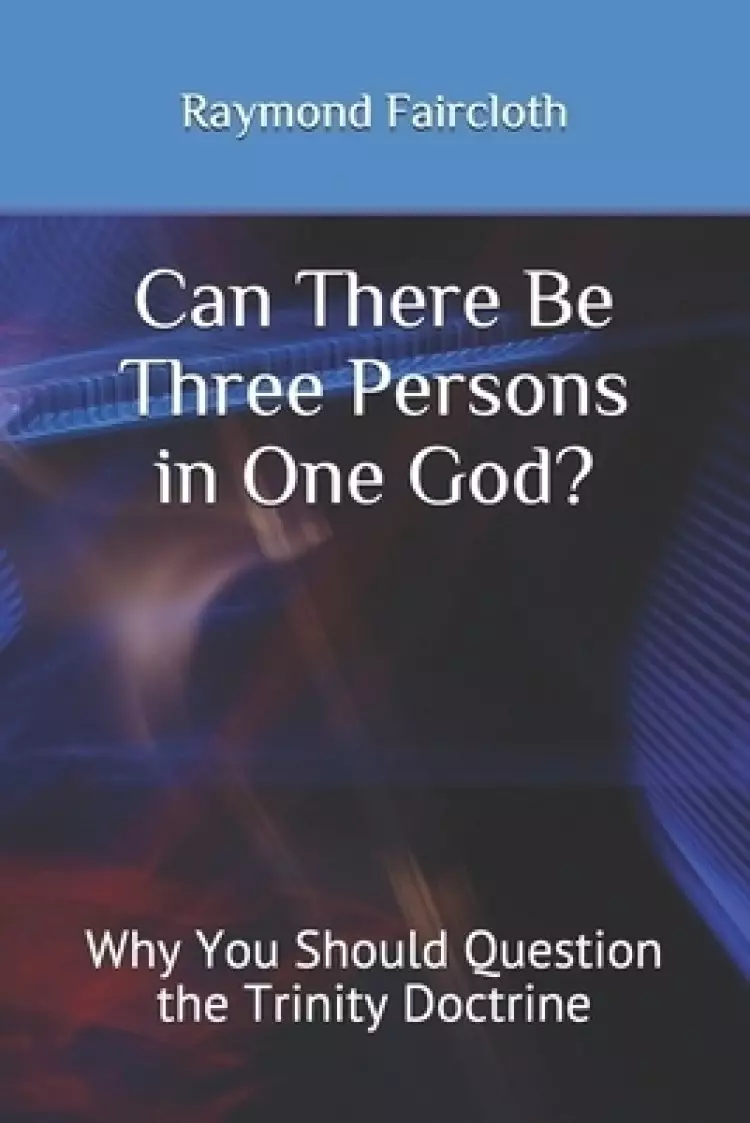Product Description
This book deals with the major subject of Christianity, namely, who is God? Is God one person? This is called Unitarianism. Or, is He an essence consisting of two persons-Father and Son? This is called Binitarianism. Or, does He consist of three persons-Father, Son, and Holy Spirit. This is called Trinitarianism and is the traditional belief. Also, it is vital to examine the equally important question of: Is Jesus the completely human "Son of God"? Or, is he 'God the Son' who pre-existed as a second person in the Binity or Trinity? Furthermore, some believe that Jesus pre-existed, but came into existence as an archangel This is called Arianism. If, however, God is one person but can appear in different modes, did He leave heaven and come down into Mary's womb in the 'mode' of a human-so that "God the Father" became the baby Jesus? This is called Modalism. These issues have raged since the second century when Jewish Christianity had gone out into the Gentile world with that world's pagan Platonic philosophies. Most importantly, the Jews of Judaism, throughout its history, never taught that God consisted of two or three persons in one essence. So, the key question is: Did Jesus or any of his Bible-writing representatives change that belief? Did they reveal a truth that the Jews were unaware of? In other words, was Jesus really a Binitarian or a Trinitarian? Or did he confirm a strict Unitarian monotheism concerning His heavenly Father? Furthermore, it is claimed that the Christianity of the churches is one of the three great monotheistic religions, the other two being Judaism and Islam. However, with the definition of monotheism being the worship of one God, we must ask: Can a teaching of three persons in one God truly be monotheistic? The importance of this subject of "who God is" can hardly be overstated and this book demonstrates that the Bible teaches an entirely Unitarian view of who God is. In other words: God is one person, the Father. Furthermore, it shows that Jesus never literally pre-existed and has always been 100% human as existing from his conception in Mary's womb. However, because the predominant teaching of the churches is that of Trinitarianism the material in this book focuses on the falseness of that view according to the Bible but, naturally, some of this information is also applicable to Binitarianism and to a lesser extent Modalism. Certainly, these last-mentioned doctrines are also a deviation from the original belief about God as found in ancient Judaism, in Jesus' teachings, in the words of the Apostles, as well as those of the earliest Church fathers. Additionally, this book examines the associated Trinitarian doctrines of the eternal generation of the Son, the hypostatic union, kenosis, perichoresis, and coinherence-strange terms indeed, but ones that will be explained in the book Indeed, these terms are all man-made expressions as ways to try to explain the Trinity. Furthermore, some defenders of the Trinity doctrine try to use analogies in this futile endeavour-futile because their analogies do not actually fit with the Trinity. Apart from revealing all the issues and problems with the doctrine of the Trinity as compared with the biblical data, the various parts of this book also reveal the biblical concept of ideal or notional pre-existence indicating that Jesus did not literally pre-exist, but did pre-exist in God's mind, that is, God's foreordination of "the Son of God," so that there never was a "God the Son" or some other being from heaven. Part of the misunderstanding of the origin of Jesus is because of a misreading of the last gospel to be written, namely, the Gospel of John with many of Jesus' sayings being in very figurative language and which should not be read in a literalistic way. Clearly, John's Gospel account should be read after one has grasped the meaning of the birth narratives in the Gospels of Matthew and Luke.


